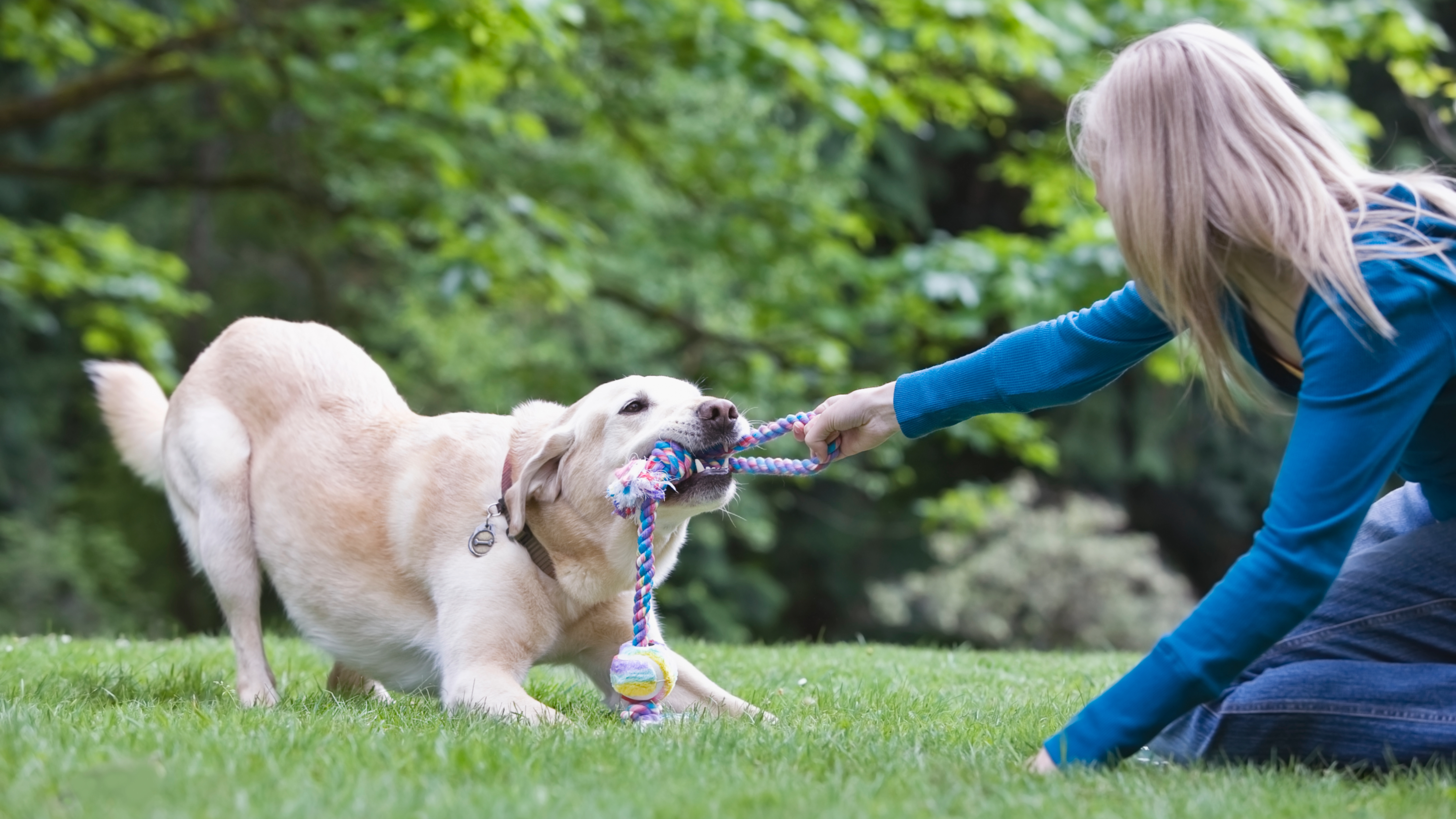Trainer reveals why you need to incorporate play when training your reactive dog (and it makes so much sense!)
Dogs love having fun, and play can really help.

As any dog parent can attest to, dogs love to play. Play is beneficial for dogs, too, giving them all sorts of physical and mental benefits, and it’s important to engage in play with your pup each day.
It’s a great idea to incorporate play into training sessions, and it’s something that can really benefit reactive dogs – so grab a couple of the best dog toys and get started!
Professional dog trainer and behavioral consultant Amelia Steele, or Amelia the Dog Trainer, has explained why play can be so great for reactive dogs in a recent Instagram post, and it makes so much sense.
A post shared by Amelia Steele | Dog Training & Behaviour (@ameliathedogtrainer)
A photo posted by on
“In the case of frustration-based reactivity, where your dog loves other dogs and barks because they want to go over and say hi, when you think about why they want to go over to other dogs, it’s because they see a lot of value in them, and that’s because they are fun,” Steele explains.
Often, we become boring to our pups, and we aren’t giving them the fun they’re after. “If we can switch that up and show them that we can provide that fun while giving them an outlet to play and have a great time, then this is super powerful,” she continues.
But play can be great when it comes to fear-based reactivity in dogs, too. Showing a fearful dog that they can play and have fun around things that can otherwise be scary is really useful in helping them change their associations and cope better with their fears.
It’s also worth remembering what causes reactivity in dogs. Whether it’s frustration, fear, anxiety, lack of socialization, or something else that prompts your dog to display reactive behavior, you can use play to help them. Of course, play won’t ‘fix’ their reactivity on its own, but it can certainly be more effective than you might think.
Get the best advice, tips and top tech for your beloved Pets
Play can be a great reward in reactivity training, too. Often, dogs will prefer play over food as a reward, so engaging in play can be a great incentive for them – it’s definitely worth trying to see what your pup prefers!
If you’re in need of some inspiration, these fun games for reactive dogs are great place to start, while you might also find this article insightful: Owning a reactive dog is hard. Here's how I navigated the social challenges with my pooch.
Don’t forget to read this one, too: I trained as a dog behaviorist to better understand my reactive dog, and it totally transformed our bond.

Adam is a freelance journalist specialising in pets, music and culture, and mental health and wellbeing. He investigates and writes the large majority of news on PetsRadar, and collaborates with veterinary experts to produce informative pet care content.
Adam has a journalism degree from Southampton Solent University and a masters degree in Magazine Journalism from Cardiff University. He was previously senior editor at dog advice website DogTime.com, and has also written for The Independent, GoodToKnow and Healthline.
He owns two rescue cats, Bunny and Dougie, and has also previously had a rabbit, fish and Roborovski dwarf hamsters.
